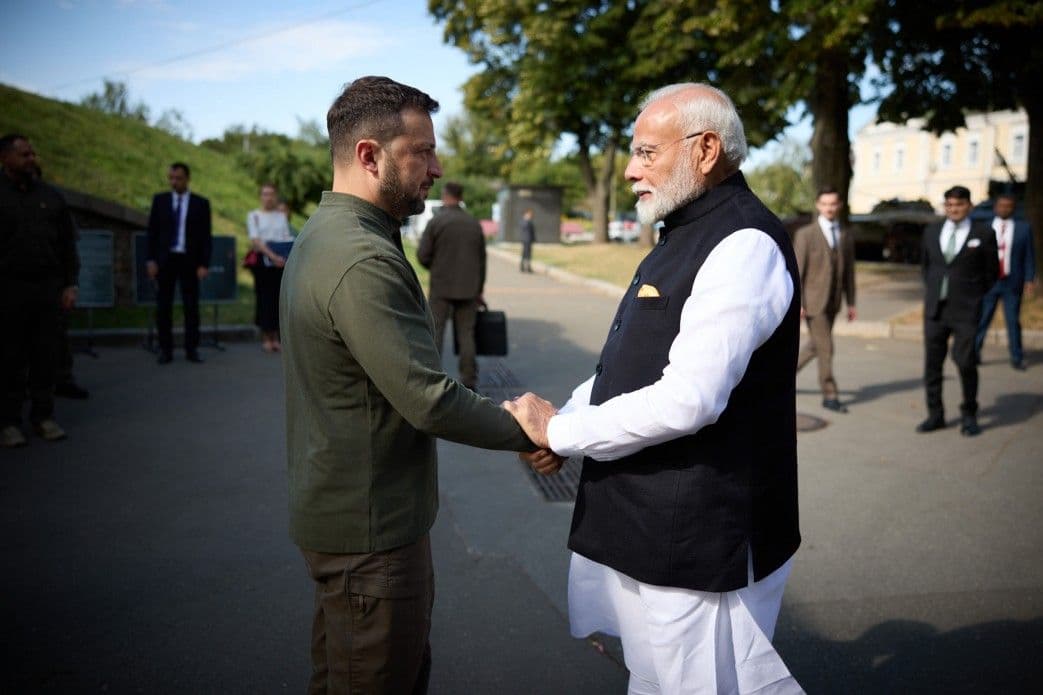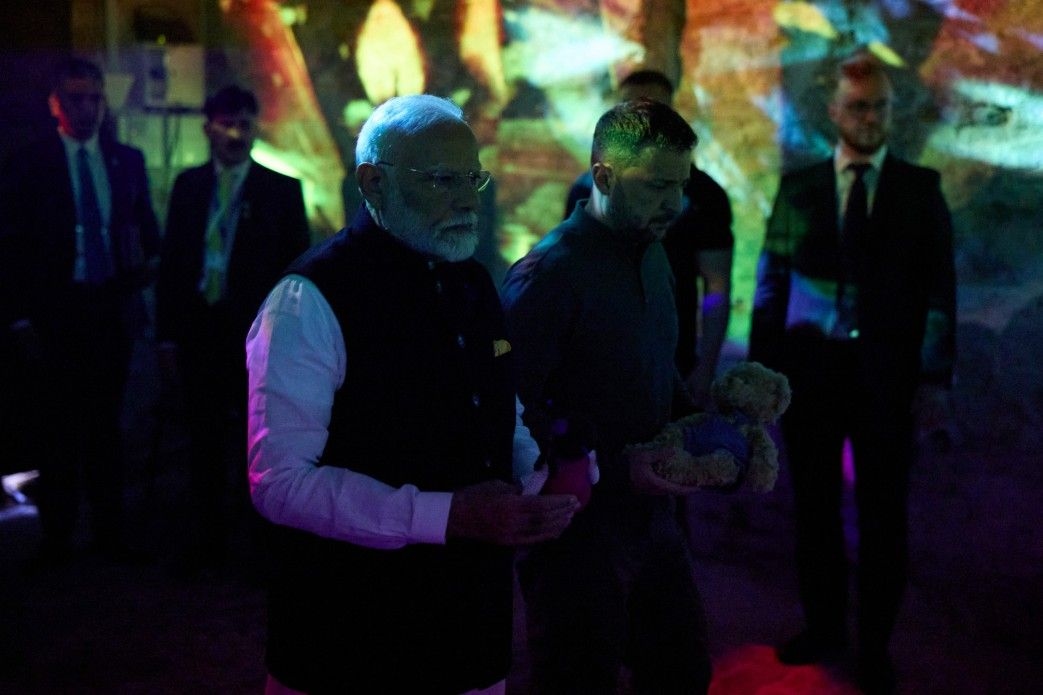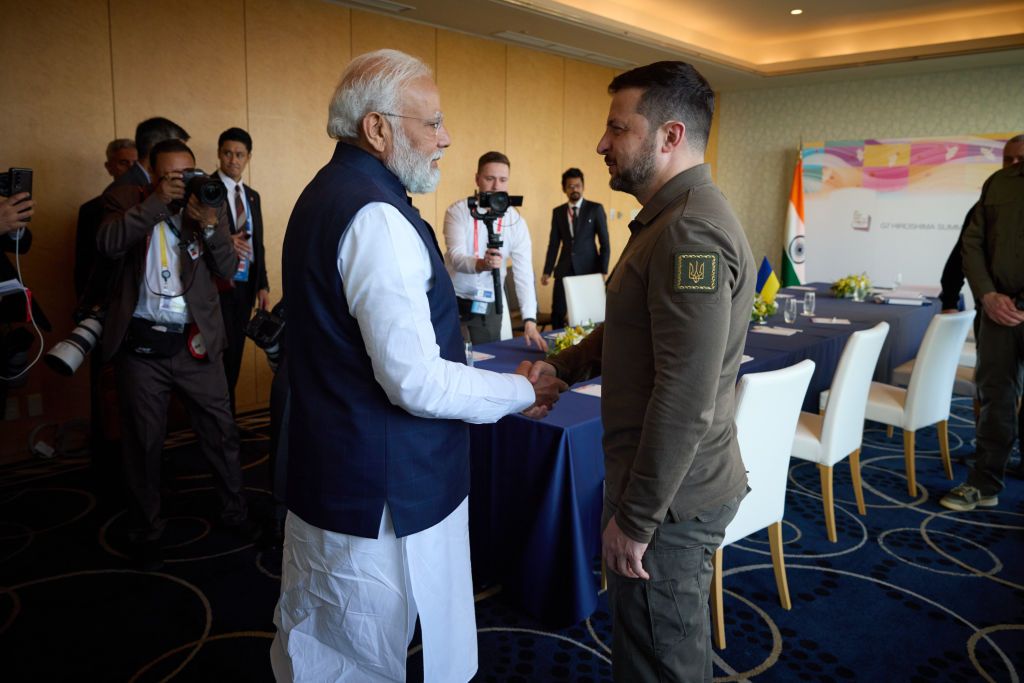Indian prime minister arrives in Kyiv, meets Zelensky

Indian Prime Minister Narendra Modi arrived in Kyiv on Aug. 23, where he met with President Volodymyr Zelensky, Ukraine's Presidential Office reported.
The historic visit is the first time an Indian prime minister set foot in Ukraine since diplomatic relations were established over 30 years ago.
Following the meeting, Modi and Zelensky commemorated Ukrainian children killed during Russia's full-scale war. A total of 570 children have been killed and more than 1,520 have been injured since the beginning of Moscow's all-out war against Ukraine, the Prosecutor General's Office said on Aug. 21.
"Children in every country deserve to be safe. We must make it possible," Zelensky said.

Modi's visit to Ukraine comes just weeks after a trip to Moscow, where he held talks with Russian dictator Vladimir Putin.
The visit included a widely criticized hug between the two leaders on July 8, hours after Russia bombed the Okhmatdyt children's hospital in Kyiv, killing two people.
A historical ally of Russia, India has maintained its close economic and diplomatic ties with Moscow since February 2022, with bilateral trade reaching a historic high in 2023.
In June, Modi met with Zelensky in Italy during a G7 summit. They discussed the ongoing situation in Ukraine, with Modi emphasizing the importance of "dialogue and diplomacy."
He reiterated that India would continue to support a peaceful resolution, according to the meeting's official handout.
India has been calling for a diplomatic solution to Russia's war against Ukraine but has been simultaneously fostering close economic ties with Moscow.
India became one of the chief buyers of Russian oil following Western sanctions, although pressure from U.S. sanctions increasingly threatens this trade.
While India participated in Ukraine's global peace summit in June, Modi did not attend personally, and India's representative did not ultimately sign the joint communique.
Modi was also one of the few democratically elected leaders to congratulate Putin on his re-election in March after a vote that was widely considered to be neither free nor fair.













